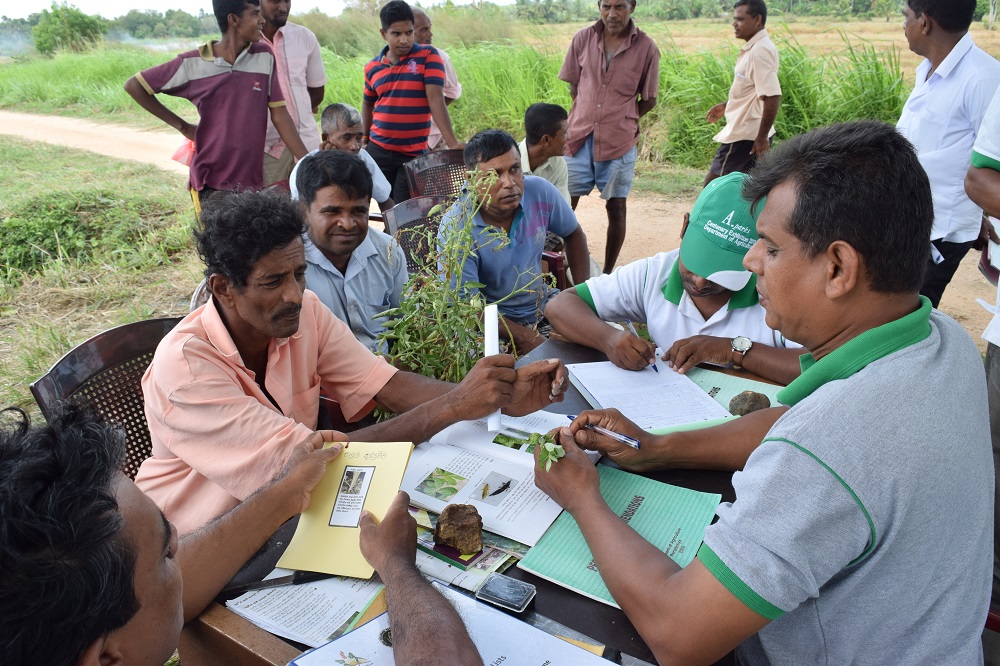CABI and ACIAR sign AUD $2.1 million four-year agreement to steer future collaboration

CABI and the Australian Centre for International Agricultural Research (ACIAR) have signed a four-year agreement worth AUD $2.1 million to guide future collaboration that will fight a range of crop pests and disease which threaten global food security.
CABI CEO Dr Trevor Nicholls and Professor Andrew Campbell, CEO of ACIAR, signed the partnership agreement which will help fund Australia’s membership of CABI, the CABI Development Fund (a seed fund to support the piloting of innovations) and CABI’s Plantwise programme – a global initiative that helps millions of farmers grow more and lose less to plant health problems.
Dr Nicholls said, “We’re delighted that ACIAR is continuing to support CABI’s sustainable agricultural development in regional economies of interest to Australia, especially those in South East Asia and the Pacific region.
“This new partnership agreement will help both organisations work towards our commitments to the UN Sustainable Development Goals – particularly Zero Hunger and Responsible Consumption and Production – through the ongoing implementation and upscaling of our products and programmes including Plantwise.”
As well as the Plantwise programme, CABI’s work with ACIAR includes a separately-funded project to strengthen vegetable value chains in Pakistan. Here the focus is on
helping farmers produce healthy and profitable onion, potato, tomato and chili crops while also enhancing the socioeconomic conditions of rural poor – particularly women – in the Punjab and Sindh provinces.
Professor Campbell said, “Our collaboration with CABI aligns with our ten-year strategy to forge partnerships and alliances that contribute to Australia’s and ACIAR’s national and international objectives. These include improving agricultural productivity and sustainability and food resilience in developing countries.”
In November last year Dr Nicholls and Sally Stone, Head of APAC sales, visited ACIAR’s offices in Canberra where they learnt more about ACIAR’s strategy and forward plans and the opportunities that may arise from them.
Dr Nicholls briefed ACIAR on the range of ICT-based systems and eLearning packages CABI is using and developing. This includes the Pest Risk Information Service (PRISE), mNutrition, UPTAKE in Tanzania and the newly-launched PestSmart eLearning course. The latter of which is helping businesses in the food supply chain manage plant health problems to grow more and better produce.



